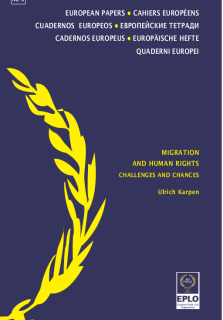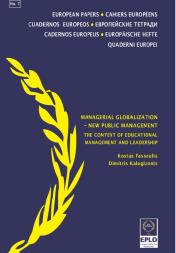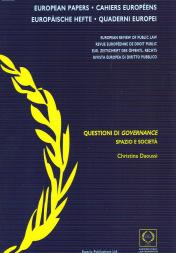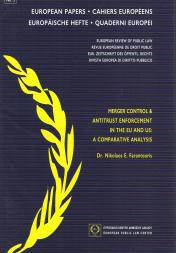
No. 6, U. Karpen, "Migration and Human Rights: Challenges and Chances"
This paper by Professor Dr. Ulrich Karpen (Law Faculty of the University of Hamburg, Germany) considers issues relating to migration and human rights, starting by the presentation of two case studies. The legal sources of protecting migrants and refugees are to be found on international, supanational/re¬gional and nation states' levels. First, there are the human rights as laid down in the Universal Declaration of Human Rights (1946). Second, we have to look at the European Convention on Human Rights of the Council of Europe (2000/2007). The European Court of Human Rights (Strasbourg), which interprets and applies the Convention, is indeed a "lighthouse" of transparency and implementation of these human rights. Moreover, there are the EU Conventions on the Participation of Foreigners in Public Life at Local Level (1992) and on the Legal Status of Migrant Workers (1997) as well as the Social Charter (1991). The Charter of Fundamental Rights of the EU (2007) is an essential part of the supranational legal order. On this level of regulation of human rights, one has to take into account the various influential Codes and Charters of the Organization for Security and Cooperation in EU (OSCE, 1990), which is one result of the Helsinki Process. Finally, we find on the third level human rights' catalogues of national constitutions, in Federated Systems even in the States' Basic Laws. It is hoped that this dense network of legal provisions may help to overcome the three highest barriers to integration, which are: acquisition of citizenship, better opportunities for political activities, more and better chances for a common and successful education, predominantly for children, wherever they come from.





















